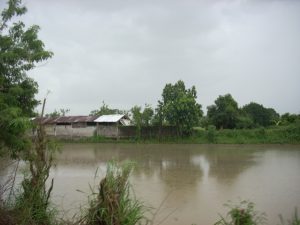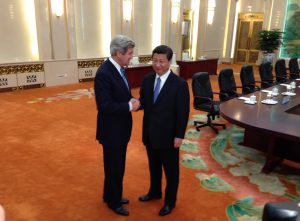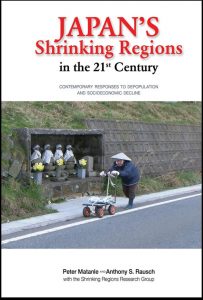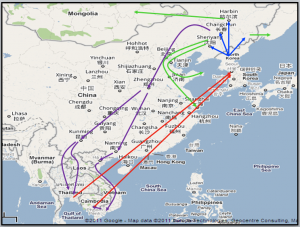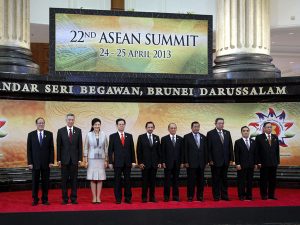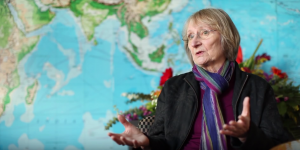Enter the “Chinese Dream”
Memo #244 By Grégoire Legault – gregoire.legault [at] alumni.ubc.ca After decades of political and socio-economic turmoil China is finally able to dream again. It is now prosperous and powerful enough to confront a new problem: how it should use its wealth and power towards social, environmental and political development. Enter the “Chinese Dream” (Zhongguo meng 中国梦). […]
Time to Act: Climate Change Adaptation in the Philippines
Memo #243 By Sarah Thomas – sarah.thomas [at] alumni.ubc.ca For a country like the Philippines, which is feeling the effects of climate change and has seen significant changes in weather patterns over the last few years, the need for adaptation is poignant. With floods now an annual occurrence, and drought also a growing concern since rainfall […]
Is the Pacific Big Enough for All of Us?: China’s Shifting Role vis-à-vis North Korea and U.S.-China Strategic Cooperation
Memo #242 By Key-young Son – skyquick [at] hotmail.com A fundamental shift is taking place in China’s idea of its leadership role in Northeast Asia that may have profound implications for the region and its strategic relations with the United States. As a treaty ally of North Korea, China has long been known as a […]
Japan as Test Case for a New Age: The Importance of Understanding Local Places
Memo #240 By Anthony S. Rausch – asrausch [at] cc.hirosaki-u.ac.jp Japan faces an aging population and rural out-migration, a sluggish economy and drastic divisions between urban-rural economies, a critical techno-environmental catastrophe and vital debates regarding energy policy. A bleak set of problems, but also a fair representation of some of the issues the world is […]
India-Bangladesh Border Issue Unresolved
Memo #231 By Glen Hamburg – glenhamburg [at] gmail.com An international enclave is a piece of one state’s sovereign territory entirely surrounded by the territory of just one other state. Nearly 200 such land-locked islands lie along India’s border with northern Bangladesh. The obscure remnants of eighteenth century tax arrangements, these enclaves (chhitmahals in Bengali, […]
China in Global Governance (Video Interview with Professor Gerald Chan)
Memo #230 Featuring Gerald Chan – gerald.chan [at] auckland.ac.nz Professor Chan, of the University of Auckland, discusses his research on China in global governance. He describes Chinese involvement in world affairs as a new phenomenon, which began with Chinese reforms in the 1980s. This period saw increased interaction between China and other states, and between […]
The Complexity of North Korean Migration
Just imagine you’re a North Korean living in a small village. You have no one to compare your condition with. One day, you hear about people who’ve fled to China who are now well off. Some even go to South Korea, a place you know about from smuggled DVDs. You know that if caught, you could be sent to prison and beaten by guards. If successful, such migration promises a better life.
Gratin on the Noodle Bowl? New ASEAN Investment Agreement Promotes Regional Economic Integration
National ministers, Association of Southeast Asian Nations (ASEAN) officials, and managers of regional and foreign multinationals as well as representatives of small and medium enterprises in the region marked the entry into force of the ASEAN Comprehensive Investment Agreement (ACIA) with a day-long event in Kuala Lumpur this April.
China and the Global Order (Video Interview with Professor Rosemary Foot)
Chinese conceptions of global order are neither well defined nor agreed upon. Many Chinese intellectuals debate what Chinese preferences should be regarding a global order, and the future role of China within it. These scholars are putting forward new ideas often based on Confucianism or Chinese historical experience. However, this academic debate is not reflected in government statements or policy. We see no clear promotion of a coherent concept of a global order, differing from what we currently see, articulated by the Chinese government. What is clear is that China seeks more voice and more representation. Issues such as G20 membership are increasingly important to China. There may be revisions around the edges of Chinese global preferences, but China overall is not demonstrating that it is a dissatisfied power.
Journalism in China: Impacting Policy in a Changing Media Landscape (Video Interview with Melissa Chan)
Currently a John S. Knight Journalism Fellow at Stanford University, and former China correspondent for Al Jazeera, journalist Melissa Chan discusses the changing media landscape in China and the role played by foreign correspondents.

